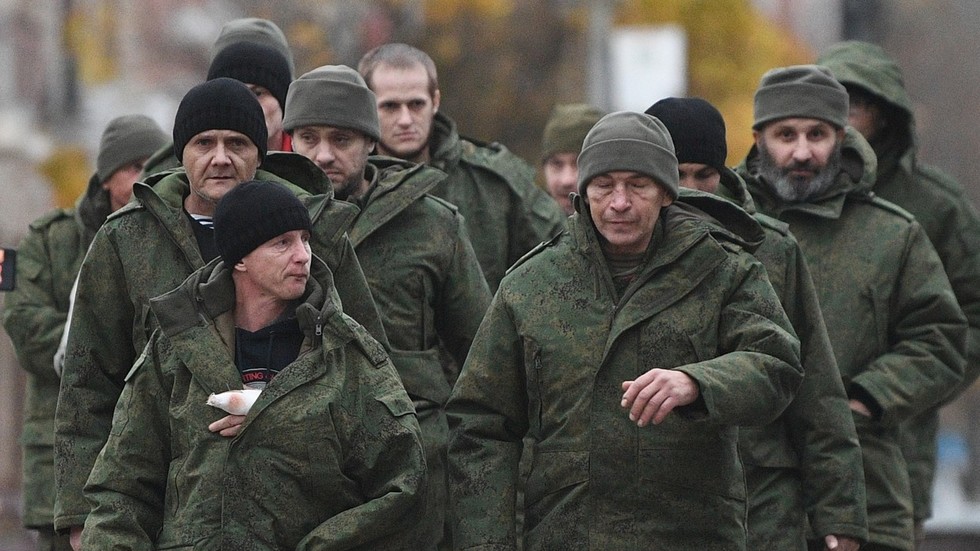Russian servicemen have alleged they endured brutal torture while being held captive by Kiev’s forces. The country's Investigative Committee announced on Wednesday that it will be launching a criminal investigation into the abuse claims.
According to testimony published on the armed service's official Telegram channel, Russian soldiers were subjected to merciless interrogations. One fighter alleged he was taken prisoner when he was already wounded, having had a bone in his right hand broken by a bullet. He claims that Ukrainian interrogators beat him with a shovel and with rebar, shot him in both feet, broke his jaw, several ribs and punctured his lungs.
Another soldier claimed his interrogation began with a knife stab to the leg, which caused severe bleeding that remained untreated. When his captors didn’t like his answers, they beat him with thumps and kicks, and then with a helmet or the with butt of a rifle, he alleged. After the interrogation ended, the soldier testified that he was held down by three men as a fourth cut off one of his fingers.
He also claims that he was forced to sign an agreement to cooperate with Ukrainian special services, under a threat of murder and harm to his loved ones.
The Investigative Committee has also stated that “the testimonies of Russian military personnel indicate that representatives of Ukraine are grossly violating the requirements of the Geneva Convention on the Treatment of Prisoners of War, which prohibit ill-treatment, torture and abuse.”
Kremlin pledges to find Ukrainians who executed POWs
Read more Kremlin pledges to find Ukrainians who executed POWs
Investigators say they will continue to work with the Ministry of Internal Affairs, the Federal Security Service and Russia’s Defense Ministry to identify those responsible for the murder and torture of civilians and of captured Russian servicemen. The committee has vowed to record all evidence of brutal crimes committed by Kiev’s forces.
Оn Tuesday Moscow and Kiev conducted their latest prisoner exchange in the 60-60 format, where both sides released 60 captive soldiers who were considered to be in “mortal danger.” The released Russian servicemen have since been transported to Moscow to undergo treatment and rehabilitation, and to receive psychological and medical assistance.
https://www.rt.com/russia/567838-ukraine-torture-russian-pow/
Ghana is interested in purchasing a floating nuclear power plant from Russia, Ghanaian Ambassador to Russian Koma Steem Jehu-Appiah told Sputnik.
"I know that our minister of energy was here last year and signed a corresponding agreement. I think this is innovative, and in a conversation with the minister of energy, he said that the country is interested.
So, Ghana could purchase such a nuclear power plant," the diplomat said when asked about the possibility of Ghana purchasing a floating nuclear power plant.
Russia and Ghana began cooperation in the field of nuclear energy after signing an intergovernmental agreement in 2015.
The agreement outlined plans for joint work in the areas of training specialists, building nuclear power plants and related infrastructure, and providing maintenance services. In October 2023, representatives of Rosatom met with the Ghanaian Ministry of Energy in Cape Town. At the meeting, Russia proposed using floating nuclear power plants to supply power to ...














